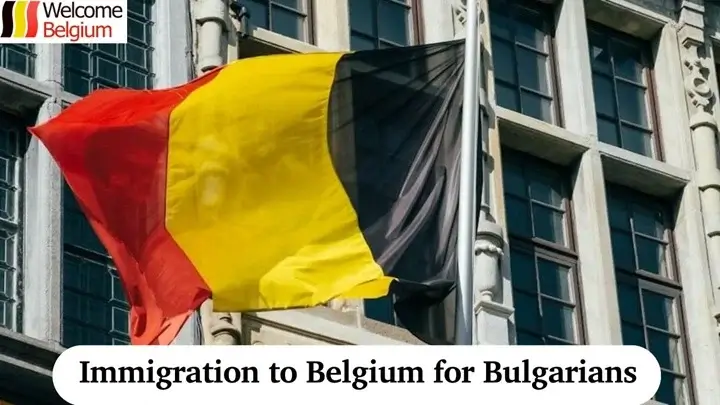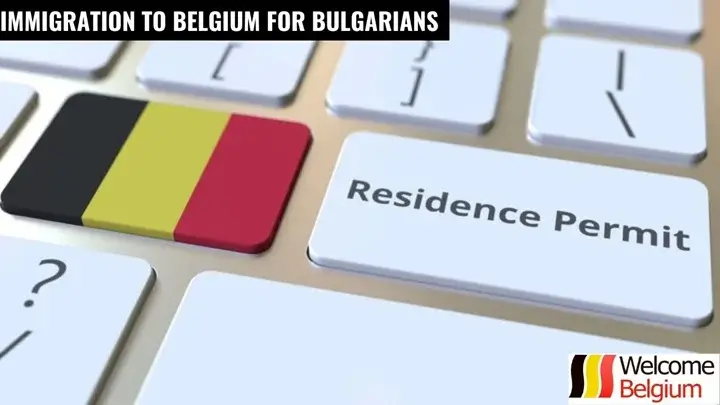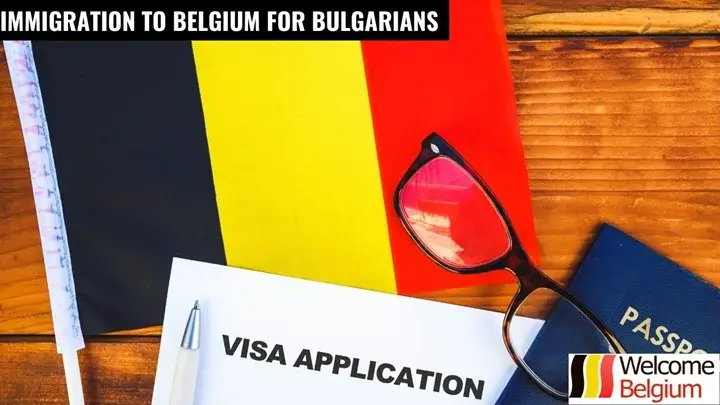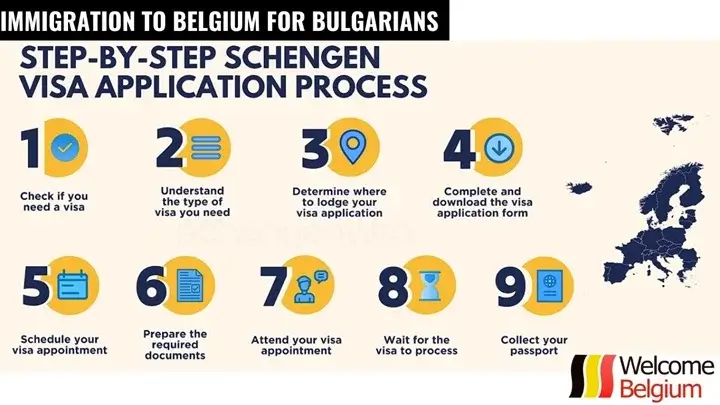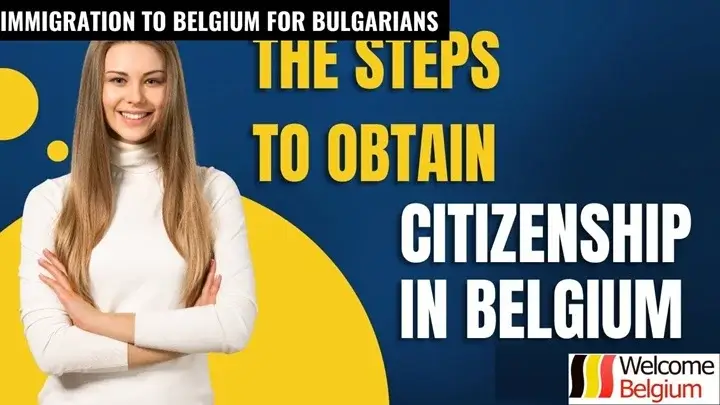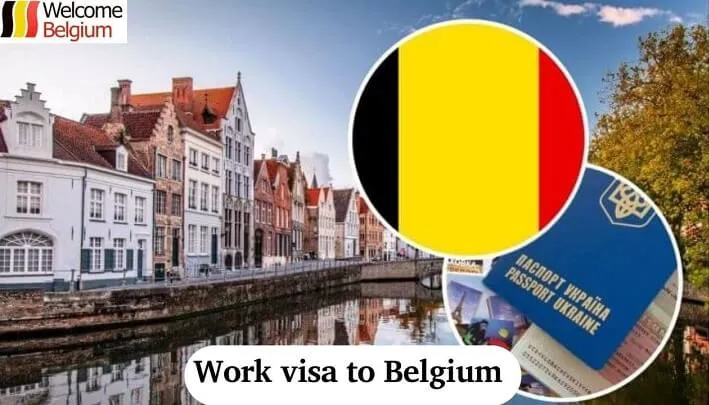Belgium is becoming an increasingly popular choice for Bulgarians seeking professional development and a comfortable life abroad. With a developed economy, high standard of living and diverse cultural traditions, this country offers many opportunities for successful immigration. However, in order to move, it is important to understand all the stages of paperwork, housing requirements and adaptation nuances. This article will help Bulgarians understand the key aspects of life in Belgium and begin a new stage of their lives.
Reasons for the relocation of Bulgarian residents to Belgium
Belgium is becoming an attractive destination for Bulgarians due to its high standard of living, stable economy and cultural openness. Many Bulgarians move to this country in search of career opportunities, quality education and social protection. In recent years, the number of Bulgarians in Belgium has increased significantly, reflecting the trend of increasing migration to the EU.
Reasons for the relocation of Bulgarian residents to Belgium
- Jobs and career prospects. High demand for skilled professionals and workers.
- Quality of life: Belgium offers a high level of health care, education and infrastructure.
- Education: European standards of education attract students, including Bulgarians.
- Social guarantees. State support and equal rights for citizens and immigrants.
- Convenient location. Possibility to travel and do business in other EU countries.
- Cultural diversity: Belgium is renowned for its tolerance and multicultural environment.
According to 2024 data, more than 50,000 Bulgarians live in Belgium, making them one of the largest communities from Eastern Europe. This growth is explained by the improvement of migration conditions and the popularization of Belgium as a stable and comfortable country to live in. The move requires careful preparation, but many Bulgarians note that the advantages of living in Belgium are worth all the effort.
Interesting fact:
Most Bulgarians in Belgium are concentrated in Brussels and Antwerp, where a network of Bulgarian communities and cultural organizations is developed.
Types of Belgian visas for Bulgarians
A visa is an important document for entry and stay in Belgium, even for EU citizens who plan a long stay or work. Bulgarians, as EU citizens, do not need a visa for short-term stays of up to 90 days. However, for long-term purposes such as work, study or family reunification, additional permits may be required. Let’s look at what types of visas are available and how to apply for them.
Types of visas for immigration to Belgium:
- Short-term visa (type C):
- description: intended for a stay in Belgium of up to 90 days within the Schengen area. Suitable for tourism, business trips or participation in cultural and sporting events;
- documents: international passport, medical insurance, accommodation reservation, proof of financial solvency;
- validity period: up to 90 days;
- processing time: up to 15 working days, it is recommended to submit an application at least one month in advance;
- cost: about 80 euros, additional fees are paid separately.
- National visa (type D):
- description: issued for a long stay in Belgium (over 90 days), including study, work or family reunification;
- documents: employment contract, letter of admission to a university, marriage certificate (depending on the purpose);
- validity period: from 6 months to 5 years, extension is possible;
- processing time: up to 60 days from the date of application;
- cost: from 200 euros depending on the purpose of stay.
- Work visa:
- description: mandatory for employment in Belgium. A work permit from the employer is required;
- documents: employment contract, confirmation of qualifications (diplomas), work permit (Work Permit B or Single Permit );
- validity period: corresponds to the duration of the employment contract, extension is possible;
- processing time: from 2 to 3 months;
- cost: from 350 euros depending on the type of permit.
- Study visa:
- Description: Issued to students enrolled in educational institutions in Belgium, including language courses and internships;
- documents: letter of admission, proof of financial solvency, proof of housing;
- validity period: for the period of study, with the possibility of extension;
- processing time: up to 2 months;
- cost: about 200 euros plus possible additional fees.
- Family Reunification Visa:
- description: intended for family members of EU citizens or residents of Belgium;
- documents: certificates of relationship (marriage, birth), confirmation of financial support from the main applicant;
- validity period: depends on the validity period of the residence permit of the main applicant;
- processing time: from 3 to 9 months;
- cost: about 200 euros.
The choice of the appropriate visa depends on the purpose of stay: study, work or family reunification. It is important for Bulgarians to prepare a full package of documents in advance to avoid delays in the process. If in doubt, it is worth contacting the consulate or using the services of visa agencies.
Tip:
Bulgarians only need a work permit to work in Belgium, rather than a full visa, thanks to the simplified visa regime.
Obtaining a residence permit
For Bulgarian citizens who want to move to Belgium, obtaining a residence permit is a key step to legally living and working. The first steps include registering with local authorities and applying for a residence permit. Belgium offers simplified conditions for EU citizens, including Bulgaria, but the process requires a number of formalities.
Stages of obtaining a residence permit:
- Initial registration:
- Upon arrival in Belgium, a Bulgarian citizen must register at the municipal office at his place of residence within 8 days.
- The office address can be found on the official website of the local administration.
- List of required documents:
- Passport or ID card of a citizen of Bulgaria.
- Lease agreement or proof of residential address.
- Health insurance.
- Proof of financial solvency (employment contract, bank account).
- Demands from the authorities:
- EU citizens can stay in Belgium for up to 90 days without obtaining a residence permit.
- For long-term stays, proof of employment, study or other reasons for stay must be provided.
- Where to apply:
- Communal office (address and telephone number depend on the specific region, e.g. Brussels, Ghent, Antwerp).
- Basic information is available on the website https://www.belgium.be .
- Terms and cost of registration:
- A residence permit is usually issued within 1–3 months.
- The cost of the administrative fee depends on the region and the status of the applicant (approximately from 25 to 50 euros).
If for any reason the authorities refuse to issue a residence permit, a Bulgarian citizen has the right to appeal this decision. To do this, you need to contact the Belgian Migration Office or consult a lawyer. It is important to provide additional evidence confirming your situation. The refusal may be due to a lack of documents or inconsistency of the stated reasons.
Tip:
Bulgaria and Belgium are in the EU, which simplifies the process of obtaining a residence permit, but always keep copies of the submitted documents for possible appeals.
Obtaining Belgian citizenship
Obtaining Belgian citizenship for Bulgarian citizens begins with several important steps that require careful preparation. First of all, it is necessary to live in the country for a certain number of years, meet legal requirements and provide the necessary documents. This process can take several years, depending on the status of the applicant and compliance with all conditions. Below we will look at the key steps and requirements that will help you obtain citizenship in Belgium.
Stages of obtaining citizenship:
- Accommodation in Belgium
- To apply for citizenship, you must have lived in Belgium for at least 5 years on the basis of a residence permit or temporary residence permit.
- For EU citizens, the period may be reduced to 3 years if you are fully integrated into society.
- Preparation of documents
- Bulgarian passport.
- Documents confirming residence in Belgium (visa, registration, rental housing).
- Proof of legitimate income or employment.
- Certificate of knowledge of one of the languages (French, Dutch or German).
- Contacting your local municipality
- You must submit an application to your local municipality where you live.
- The address and contact details can be found on the official website of the municipality.
- It is important to clarify details about the required documents and the time frame for processing.
- Processing time and cost
- The registration process can take from 1 to 3 years, depending on the complexity of the case.
- The application fee varies, but is usually around 150-200 euros.
- It may take several months for your documents to be verified, after which you will receive a decision.
- Additional requirements
- When applying for citizenship, it is necessary to demonstrate knowledge of Belgian laws, history and culture.
- In some cases, it is necessary to undergo an interview with local authorities.
If you have been denied citizenship, do not despair. You can appeal in the prescribed manner, providing additional evidence of your integration and compliance with the requirements. It is important to comply with all formalities and be prepared to provide the necessary documents at each stage. Make sure you understand the reasons for the refusal and, if necessary, consult a lawyer.
Tip:
Knowing one of Belgium’s official languages is not only a requirement, but also an important step towards better integration into Belgian society.
Integration into Belgian society
Integrating into Belgian society can be an exciting but sometimes challenging process for Bulgarians. It is important to start with learning the language and understanding local cultural norms. Belgium is a multicultural country and successful integration depends on how quickly you learn to adapt to life in a new environment. The process requires patience and a willingness to learn new aspects of life.
Integration tips:
- Language learning: The first step in integration is to master French, Dutch or German, depending on the region.
- Participate in cultural events. Join local events, festivals and celebrations to better understand the culture and traditions.
- Getting to know local customs. Respecting Belgian traditions, such as the obligatory observance of traffic rules and participation in local festivities, will help you to become part of society faster.
- Networking: Become actively involved in your community through volunteer work, sports clubs, or other social groups.
- Legal support and assistance. Contact consulates or migration centers for information about your rights and options.
Integrating into Belgian society is an important and multifaceted process that requires patience and persistence. With the right preparation, active participation in the life of the country and learning the language, you will be able to adapt quickly. Belgium offers many opportunities for those who are ready to respect local customs and be open to new experiences.

